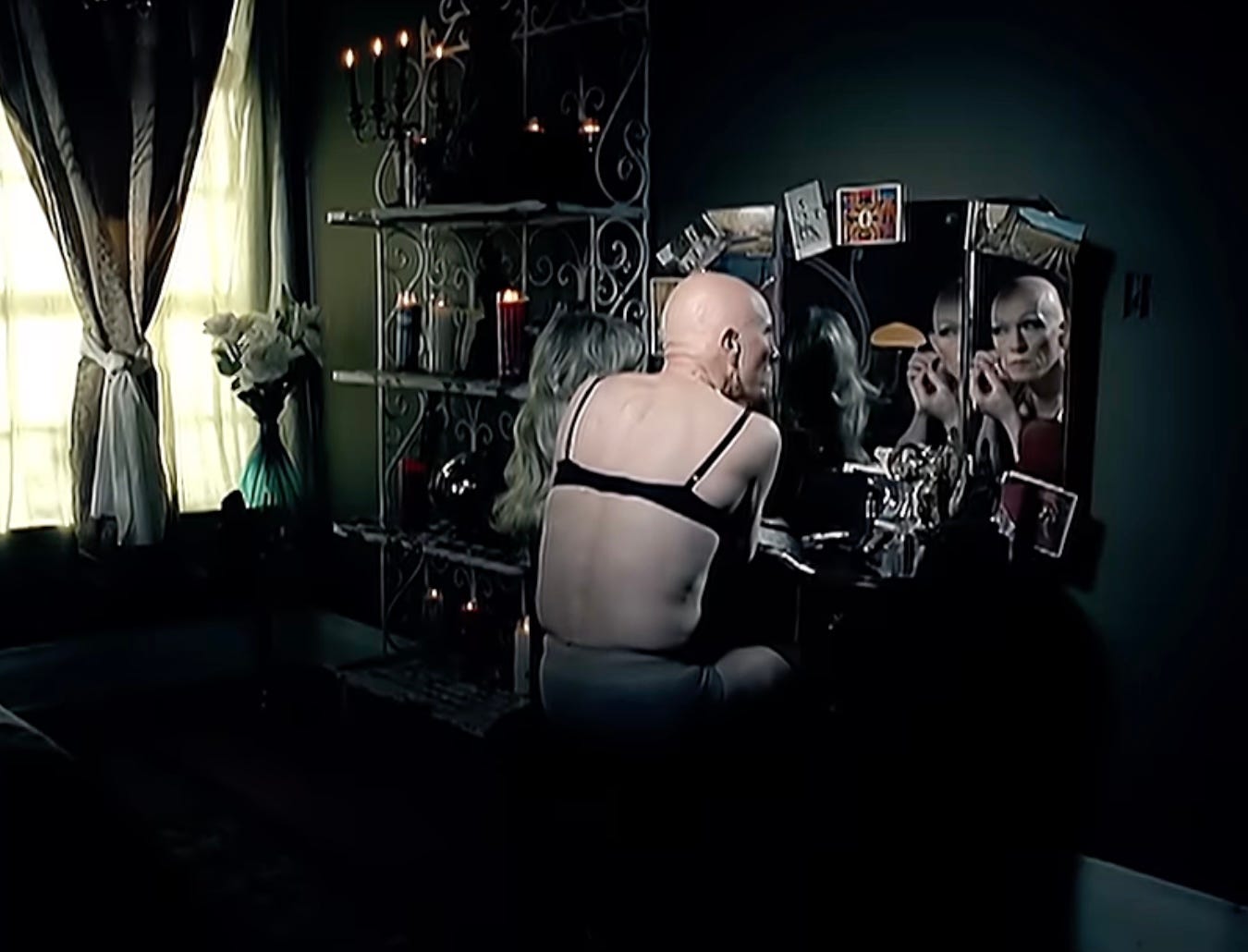A music video you watched 20 years ago has been re-released. It doesn't get better than this.
We're in charted territory now, remaking history as we go along.
I know I harp a lot on remakes and reboots and sequels in this space—on the ongoing creative drought in which we find ourselves, wherein artists and creators are increasingly unwilling to make anything new or even remotely creative—but I have to admit sometimes the depth of this artistic slump surprises even me:
A lot has changed about the world in the last 20 years, but Christina Aguilera still thinks you’re beautiful, despite what social media sometimes tells us.
The singer on Wednesday released an updated version of her “Beautiful” music video that specifically takes aim at the messages often delivered through social media that have negative effects on our body image and mental health.
You can watch that video here. But you don’t have to, because, you know, you saw it 20 years ago, and it’s basically the same thing, so there’s no need. Those who remember the original version will recall the pretty effective if grimy perturbation it utilized to sell its admittedly rather flat message, including several shots of two gay dudes gratuitously French-kissing each other as well as a man dressing up in women’s clothing. It was in retrospect a video ahead of its time, which is to say there was doubly no reason to make it again today.
I would not harp on a single music video so much if it were not so plainly a symptom of a larger and really quite pressing issue, which is the near-total stagnation of our creative class. They’re simply not doing things as well as they used to. This matters more than you think. Art is important. Creative things, which is to say things of creation—good music, good movies, good books—make life more interesting and more intellectually stimulating and more worth living. When you have access to a rich and high-quality and consistently novel catalogue of artistic creations, you are going to think more, feel more, reflect more, maybe even create more yourself; a good canon deepens your own thoughts and feelings in ways that improve your life in meaningful ways. Good art is to the soul like salt is to food: It accentuates what is already good, deepens and enflavors it further, while ideally suppressing any natural bitterness that was already present.
Eat the same thing day after day, of course, and you’ll grow sick of it, salt or no salt; do it long enough and eventually you’ll instinctively start to abhor even the thought of food itself, insofar as you’ll only associate it with boringness and stagnation and grim consumption. So it is also with art: If your culture’s creative mechanisms grind to a halt and nearly all you have to consume is either things that were made 20 years ago or warmed-over leftovers of things made 20 years ago, then eventually even the wan artistic instincts of lazy remakery will start to collapse—which is I think what you’re seeing when Christina Aguilera “updates” a two-decade-old video for no discernible purpose whatsoever. The act of creative cannibalization has become rote and lazy even by its own low standards and we are all suffering for it.
It is worth pointing out that, while the 2002 version of “Beautiful” pulled its message off simply by dint of the the fact that it was somewhat gross and uncomfortable—that was kind of the point—the “updated” version can’t even sell its own updated message with any real sincerity:
The video ends with a pointed message: “In the last 20 years, since ‘Stripped’ was first released, social media has transformed our relationship with our bodies and, in turn, our mental health. Research suggests that time spent on social networking sites is associated with body image issues, self-harm, and disordered eating in children and teens. This needs to change.”
A link is then provided to Aguilera’s website, which has a list of mental health resources.
The bold stroke here, of course, would have been for Christina to be completely blunt about it: “Parents, you are failing your children. Stop being useless cowards, order your children off social media, take away their smartphones, and make them start living normal, healthy lives like you had growing up.” That would be both practically effective and culturally incisive. You’re not going to fix the brutal, deleterious issues of social media consumption by offering kids a “list of mental health resources” that they don’t give a single shit about; you’re going to fix it by getting them off social media forever.
But boldness has fled us. Telling children to get off TikTok would be too revolutionary; it would upset the delicate but merciless digital commerce machine in which children play an integral if not an indispensable role. You can’t expect someone like Christina Aguilera to throw that kind of wrench into things. Artists increasingly lack the vision to create anything new, so we cannot possibly expect them to do anything that truly matters. This is not a beautiful world we’re building; it’s an ugly one. No good can come of it.



